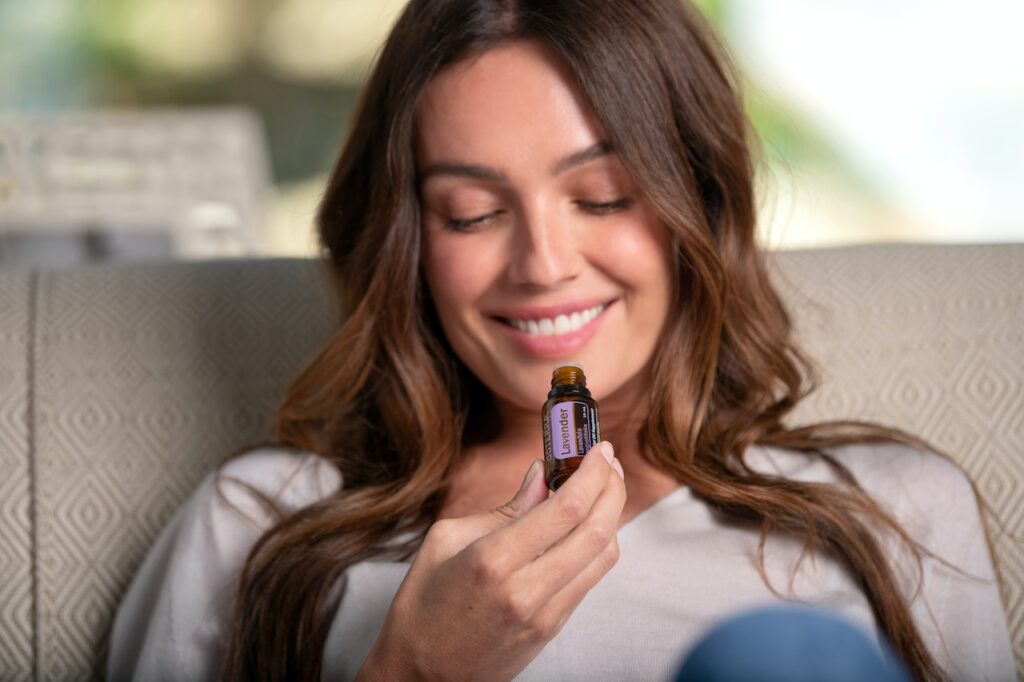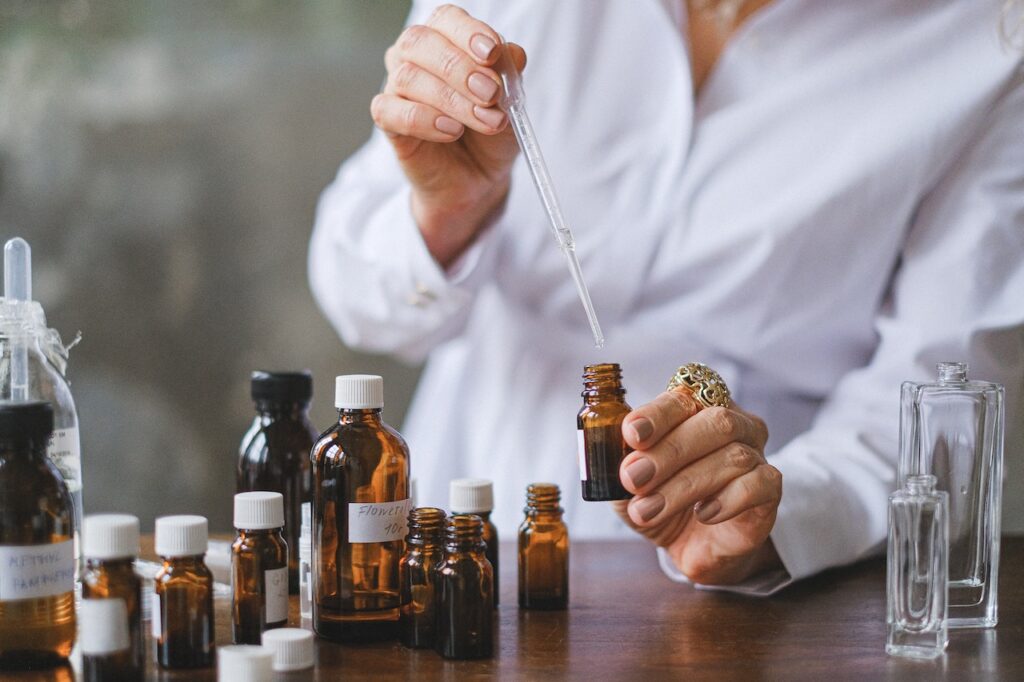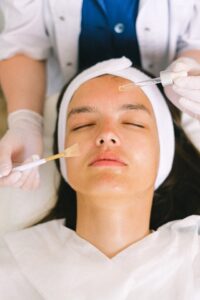While there is still much to be learned about the healing power of essential oils, current research has revealed that many of the historical claims made about them are indeed supported by contemporary medicine. Essential oils have been used for centuries around the world. From the ancient Egyptians to modern-day aromatherapists, essential oils have been used in traditional and folk medicine to treat a variety of ailments.

Let’s take a look at some of the ways essential oils can be beneficial for your health.
The Healing Power of Essential Oils
Aromatherapy is not just about smelling nice. Its about using essential oils for optimal health and well-being! From fighting bacteria and viruses to promoting relaxation and better sleep quality, essential oils offer a wide range of healing benefits that span cultures across the globe throughout history—and they continue to do so today!
An ancient healing remedy, Aromatherapy can help thousands of ailments with essential oils alone.
From relieving stress and anxiety to soothing sore muscles, essential oils are a versatile cure for modern ailments. Whether it be headaches or insomnia, essential oils aromatherapy provide relief to sufferers looking for a non-medicinal alternative.
What are Essential Oils?
What are and where do essential oils actually come from? In a word: plants.
Essential oils are derived from the leaves, stems, flowers, bark, or other parts of a plant and carry its unique aroma. They have amazing therapeutic properties that can lend balance to your body and mind.
And they come in all sorts of scents too – whether you’re into floral notes or something more earthy, essential oils are sure to tantalize the senses.
The Benefits of the Healing Power of Essential Oils
Headaches and Migraines
There’s an essential oil for everything–including headaches and migraines!
Well-known essential oils such as peppermint, lavender, and rosemary have been used for centuries to help relieve headaches.
For a cool touch, try massaging peppermint essential oil into your temples, forehead, neck and shoulders; or apply lavender essential oil on your temples for a calming effect.
If you’re feeling daring, take a whiff of rosemary essential oil to help restore mental alertness. Give essential oils a go next time you find yourself in the midst of a headache catastrophe!
 Healing Power of Essential Oils for Skin
Healing Power of Essential Oils for Skin
Essential oils are often used as natural remedies for skin conditions such as acne, eczema, and psoriasis. They are known to help reduce inflammation and promote healing due to their antioxidant content.
For example, tea tree oil is a popular go-to for treating acne. How? Its anti-bacterial properties help reduce redness and swelling while helping clear up blemishes.
Other skin benefits include using lavender oil to soothe burns or chamomile oil to reduce puffiness around the eyes.
Mental Health & Sleep Benefits
Essential oils have also been used throughout history as natural remedies for mental health issues such as stress, anxiety, and depression.
Lavender oil is especially popular for its calming properties. It helps balance hormones which can relieve anxiety and even improve sleep quality due to its sedative effects on the nervous system.
Other essential oils such as bergamot and jasmine can also help regulate mood swings by reducing cortisol levels in the body associated with stress and anxiety.
Immunity Support
The antimicrobial properties found in some essential oils make them ideal for boosting immunity health.
- Tea tree oil is great for fighting off colds thanks to its antibacterial compounds that help fight off harmful bacteria in our bodies
- Eucalyptus oil helps decongest airways when dealing with respiratory illnesses like bronchitis or asthma attacks.
- Peppermint oil is another powerhouse immune booster; it helps reduce inflammation while increasing circulation, which can help ease congestion related to allergies or sinus infections.
Essential oils may be just what you need if you’re looking for an all-natural way to support your physical and mental well-being without any harsh chemicals or side effects. With careful research into different types of essential oils available on the market today, you’ll find one that works best for you!
Hormones
Sometimes it can be hard to keep our hormones in check without resorting to potentially unhealthy medications. Thankfully, essential oils can provide us with a more natural means of creating balance in our body’s essential hormones, such as estrogen and progesterone.
Not only that, essential oils have the power to influence essential functions such as cortisol production, thyroid hormone levels, and even testosterone.
So if you’re looking for a healthier way to handle your body’s hormonal needs, essential oils might just be the answer you need!
Nausea & Vomiting
Have you ever suffered from bouts of nausea and vomiting that just won’t go away? If so, why not try essential oils to the rescue!
In fact, inhaling peppermint oil has been known to help ease those uncomfortable symptoms. Not only is it all-natural but the wildly wonderful, minty smell can do wonders for any nausea-inducing episode.
Those smarty-pants scientists say that it’s due to peppermint oil affecting nerve cells in your stomach and brain – whatever it is, it works! So next time you feel a wave of nausea rolling in, take a whiff of some essential oils and turn those sour lemons into sweet lemonade!
A few words about Aromatherapy
Aromatherapy is the practice of harnessing the therapeutic properties of essential oils to improve physical and mental well-being. Remember… it dates back centuries and was even popular among ancient Egyptians, Romans and Chinese civilizations.
From calming lavender to invigorating citrus scents, essential oils can be inhaled or applied topically to enhance emotional, physiological and spiritual health.
Rather than being a one-size-fits all approach to healing, aromatherapy adapts essential oil treatments specifically to suit your individual needs. This allows you to reap full benefits from its truly unforgettable smells!
What is a Qualified Aromatherapist?
A qualified aromatherapist is much more than a connoisseur of essential oils – though that’s certainly part of the job. They’ve studied the powerful potential of essential oils and related plant-based materials to promote physical and psychological wellness, safely applying them with confidence.
Becoming a qualified aromatherapist does not only require chemical know-how. It also an intuitive ability to understand the individual needs of their clients, recommending essential oils and holistic treatments which best target healing.
It’s an art as much as it is a science, drawing upon natural ingredients and healthy practices to foster well-being in an ever-changing world.
Essential Oil Diffusers – Dos and Don’ts
Don’t worry if you’re not an aromatherapist. Essential oil diffusers are widely available and easily refillable allowing anyone the opportunity experience the power of essential oil therapy. Essential oil diffusers are a great way to bring a touch of nature into any room.
Incorporating essential oils into your home is simple, but there are certain dos and don’ts you should be aware of when using an essential oil diffuser.
– Make sure you do use the right essential oil for the right purpose – lavender for unwinding, rosemary for energizing, etc.
– Be careful not to overdo it on essential oils; sometimes less is more!
– Be sure not to let the essential oils run out before replacing them or turning off the machine. (Note: leftover essential oils can cause damage to the diffuser.)
– Avoid strong essential oils in areas where small kids and pets are present while diffusing. These can become too powerful in certain conditions.
All in all, with just a few tips and tricks, you’ll soon be enjoying all the wonderful benefits that essential oils have to offer!
Not all essential oils are created equal
Essential oils have long been hailed for their healing properties. However, it’s essential to recognize that not all essential oils are created equal!
Recent research has revealed that some essential oils may cause allergic reactions or interfere with medication. Making it essential to be aware of potential side effects and exercise caution when using them.
If you choose to use essential oils as part of your self-care routine, do your research. Keep track of any reactions, and consult a doctor when necessary. After all, there’s no sense in taking a risk and potentially turning an essential experience into an unpleasant one.

Essential Oils vs Flower Remedies
Essential oils and flower remedies may both come from plants, but they are in no way the same thing. Essential oils are produced through distillation, while flower remedies use the process of dilution.
They possess strong aromas and can be used topically or diffused into the air to reap similar aromatherapeutic benefits.
Flower remedies, on the other hand, are not aromatic and are meant to be ingested to treat mental and emotional issues rather than physical ones.
Though they offer different benefits through different processes. Essential oils and flower remedies can—like siblings—complement each other by providing comprehensive holistic support for well-being.
Precautions for Using the Healing Power of Essential Oils
Essential oils can be powerful allies in the pursuit of health, but these natural remedies need to be approached with caution.
Too much essential oil can create more problems than it solves. While essential oils should never replace medical advice, they could offer certain supplemental benefits — if properly dosed and utilized.
Before any essential oil is used for wellness purposes, consult a qualified aromatherapist or doctor who understands essential oils. This way proper precautions can be taken to ensure safe application.
NOTE: About Internal Use
Essential oils can be a great way to help maintain a healthy lifestyle, but you might want to think twice before getting too creative with them.
Taking essential oils internally without the advice of a qualified professional is not recommended for anyone. While essential oils come with many potential benefits, it’s important that they’re taken with caution to ensure the highest level of safety. Essential oil consumption, when done in an irresponsible fashion, could bring unintended consequences that nobody wants to experience.
So, if you’re considering essential oil consumption as a suitable addition for your wellness regimen, make sure to consult a certified professional beforehand!

 Healing Power of Essential Oils for Skin
Healing Power of Essential Oils for Skin